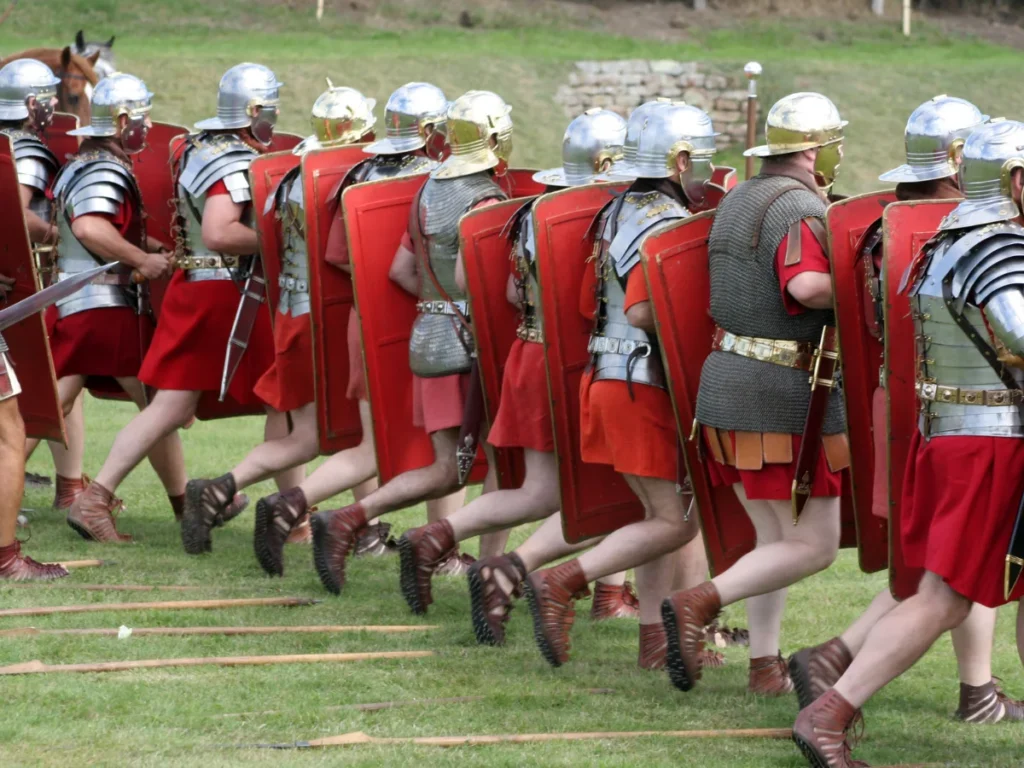Julius Caesar was a transformational figure in ancient Rome
Julius Caesar was a transformational figure in ancient Rome, and his influence extended to Greece. He played a pivotal role in Roman politics and military conquests, bridging the gap between the Roman Republic and the Roman Empire. Caesar’s connection to Greece was marked by his military campaigns in the Eastern Mediterranean, including his legendary encounters with Cleopatra in Egypt. His legacy continues to shape our understanding of ancient Rome and its interactions with the wider Hellenistic world.

Julius Caesar was a transformational figure in ancient Rome
Influence on Greece
Julius Caesar, a prominent Roman statesman, left an indelible mark on the ancient world, which extended to Greece. The Greeks held a complex view of Caesar, admiring his military prowess and diplomatic skills, yet wary of Rome’s growing power. They recognized that his leadership was reshaping the Roman Republic and had far-reaching consequences for the broader Mediterranean region.
The Relationship Between Cleopatra and Julius Caesar
Cleopatra and Julius Caesar’s relationship was a captivating chapter in ancient history. Cleopatra, the last Pharaoh of Egypt, and Julius Caesar, the powerful Roman general, came together in a union that combined politics, romance, and power.
Their connection began when Cleopatra sought Caesar’s support in her struggle for the Egyptian throne. Cleopatra, known for her intelligence and charisma, captivated Caesar with her wit and charm. Their partnership was strategic, with Cleopatra using her influence to secure her position while Caesar found a valuable ally in Egypt.
The birth of their son, Caesarion, further solidified their bond. Caesar acknowledged him as his son, raising the stakes in the power dynamics of the Mediterranean world. This relationship caused ripples in Rome, with political opponents using it as ammunition against Caesar.
Tragically, Julius Caesar’s assassination in 44 BCE marked a turning point. Cleopatra’s protector was gone, and her alliance with Caesar faced uncertainty. However, their love story did not end there, as Cleopatra’s subsequent relationship with Mark Antony continued to shape her destiny and impact the ancient world.
The connection between Cleopatra and Julius Caesar was not only romantic but also politically consequential, illustrating how personal relationships could influence the course of history in the ancient Mediterranean.
Caesar’s Untimely Demise
Julius Caesar’s life came to a tragic end on the Ides of March in 44 BCE. He was assassinated in a conspiracy involving prominent senators like Brutus and Cassius. This shocking event sent shockwaves through Rome, plunging the Republic into turmoil. His assassination was motivated by fears that Caesar was accumulating too much power, ultimately becoming a dictator.
The Aftermath and the Rise of Octavian
Following Caesar’s assassination, Rome was thrust into a power struggle. Mark Antony and Octavian, Caesar’s loyal supporters, emerged as key players in the ensuing conflict. Greece watched with trepidation as these events unfolded. The Greeks knew that whoever emerged victorious would shape Rome’s future and, by extension, their own.
The Battle of Philippi and Rome’s Transformation
The power struggle reached its climax at the Battle of Philippi in 42 BCE. Octavian and Antony, leading Caesar’s forces, confronted the armies of Brutus and Cassius. The outcome of this battle had profound consequences. Octavian and Antony’s victory signaled the end of the Roman Republic and the rise of the Roman Empire.
Julius Caesar’s life and death were pivotal moments in Roman history, setting the stage for the transformation from a republic to an empire. His legacy continues to be studied and debated by historians, making him a captivating figure whose influence resonates throughout the ages.
More History

Aristoteles
Aristotle made profound contributions to philosophy, science, and ethics. His enduring influence shaped Western thought for centuries, with lasting impacts on various fields of study.

Homer
In ancient Greece, Homer, the legendary poet, composed epic works like the “Iliad” and “Odyssey.” His vivid storytelling illuminated heroic tales, profoundly impacting Greek literature and culture.

Helios
Helios, the Greek sun god, drove his golden chariot across the heavens, illuminating the world with his radiant light. He was a symbol of life and illumination in ancient Greek mythology.
